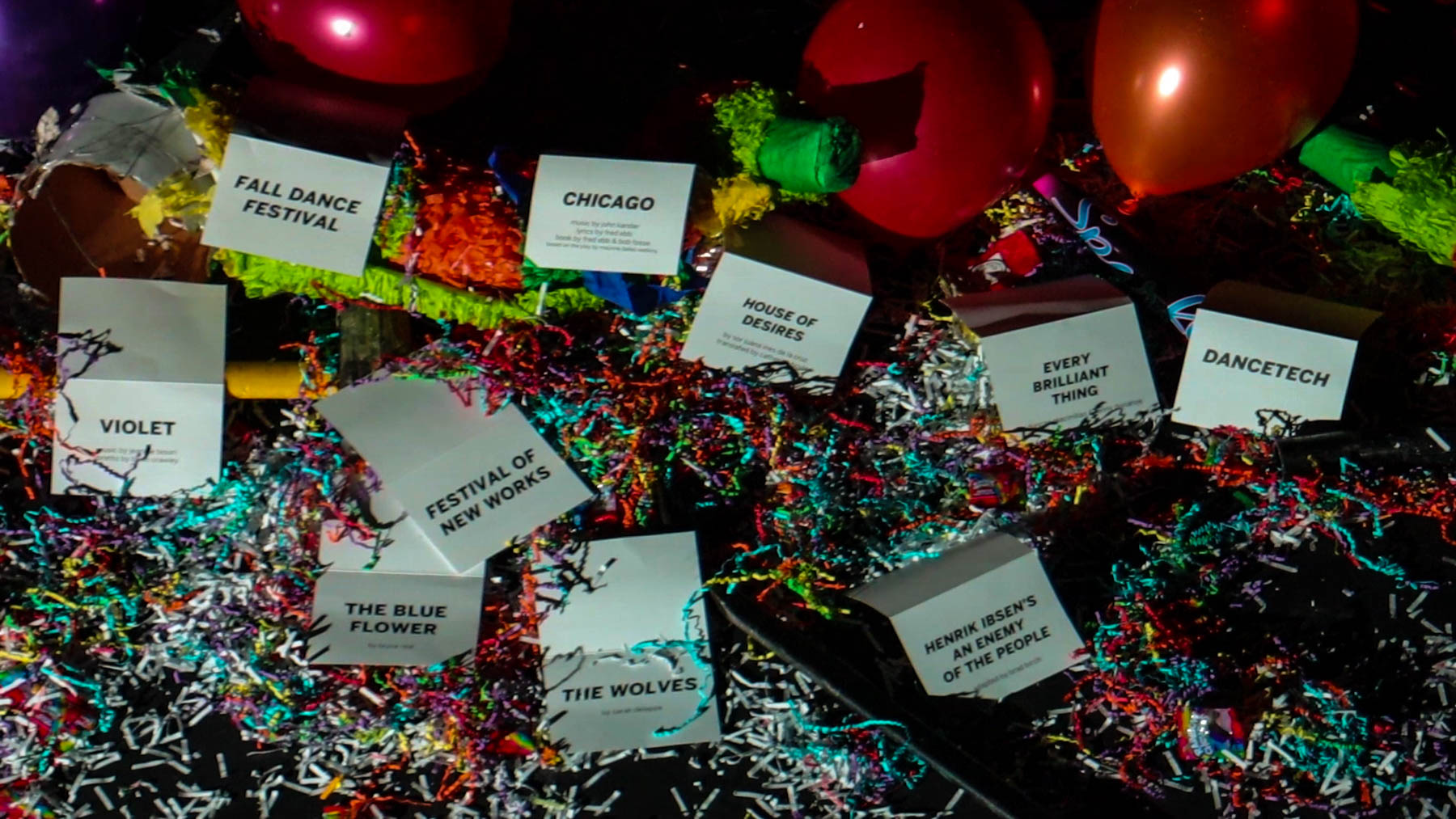Our Distinguished Visiting Professor of Playwriting, Doug Wright, Pulitzer-Prize winner for I Am My Own Wife, just left. Over the year, he taught several of our graduate and undergraduate students the intricacies of writing musical theatre, connecting them to the best writers in the country—from Marsha Norman to Alan Mencken. They loved him and the course, and that's no surprise. He's as delightful as his work.
Doug is President of the Dramatist Guild, an organization for which our Head of Playwriting, Rebecca Gilman, also actively works. Among other objectives, it protects the rights of playwrights legally and aesthetically, while also helping to advance the medium itself. Long before I arrived in Lubbock, our program, under the excellent direction of Dr. Norman Bert, was committed to fostering new voices through festivals that produce original work by writers and choreographers, but as we introduce a new season, we offer a newly revised Festival of New Works, one that replaces RROAPS (Raider Red's One-Act Play Spectacular) and RRADS (Raider Red's Awesome Dance Spectacular). It still features new choreographic and playwriting voices, but together, emphasizing the & in Theatre & Dance. Also, now that we have an intimate Studio Space, we want to feature new voices more seriously, hoping to foster and encourage an audience hungry for original works.
In other words, our School of Theatre & Dance would love to be known as one of the primary academic programs which introduces to Lubbock playwrights and choreographers who may become the voices of the current generation.
Finding audiences for new works, as you know, is challenging. Not only do patrons look for musicals and plays they know and love, but few are willing to take chances on new voices. I understand this on one level. Look at the Buddy Holly Center's inaugural show: Les Misérables. It's a surefire hit, one that Moonlight Musical produced a few years back to a huge audience, not only because it's popular, but also because audiences love revisiting the music, the story, and the staging. One of the most successful shows in Lubbock history is The Phantom of the Opera, again—a known quantity. At TTU, we appreciate and understand this tendency, hence the much beloved Guys and Dolls as our season-ender.
Our School of Theatre and Dance subscribes to the Kennedy Center model of season planning. We look for diversity, for revisiting classics, for new voices, especially with Pulitzer-Prize nominated Rebecca Gilman heading the playwriting area. We always ask the question, "Why this play now"—which explains why Dr. Bill Gelber will direct a new streamlined version of Ibsen's Enemy of the People, and with the election coming in November, why our 2020-2021 season is themed "The Personal and The Political."

New voices reflect current priorities and diverse, challenging observations. Sure, undiscovered plays may be less polished, but every play, every dance, every musical you now love was new once; if we can introduce audiences to contemporary perspectives, as we have done with WildWind for going-on eight years now, we can serve both the playwright/choreographer and the patron.
Best of all, we are not afraid to take chances. Last year, we developed dances adapted to the outdoor and indoor space in which they were performed, and this year, RROAPS/RRADS' authors and choreographers originated plays and dances, respectfully, to fill a space designed by Shawn Ketchum Johnson. Yep, the prompt is the set, a first-time event for us!
University theatres have the responsibility and the privilege to celebrate new voices. If we remain married only to old favorites, the theatre/dance world would stagnate and the next generation of artists may be left undiscovered. The Dramatist Guild exists to honor these new voices, and our playwriting area, so intimately connected to this important organization, hopes to lead the nation in this initiative.
So, if you see unfamiliar theatre and dance offerings in our next season, take a chance. The events are usually cheaper than a film, and isn't the unpredictable, ephemeral nature of new works preferable? Who knows—you may be the first to see the next Pulitzer Prize winner!
